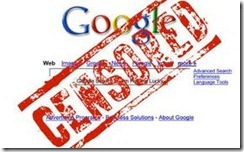In case you missed all the news on the proposed bill to Stop On Line Piracy, or SOPA as it has become known, is a bill that was introduced into the US house of representatives in October last year.
The bill, if made law, would expand the ability of U.S. law enforcement and copyright holders to fight online trafficking in copyrighted intellectual property and counterfeit goods.[2] Presented to the House Judiciary Committee, it builds on the similar PRO-IP Act of 2008 and the corresponding Senate bill, the PROTECT IP Act.
The originally proposed bill would allow the U.S. Department of Justice, as well as copyright holders, to seek court orders against websites accused of enabling or facilitating copyright infringement. Depending on who makes the request, the court order could include barring online advertising networks and payment facilitators from doing business with the allegedly infringing website, barring search engines from linking to such sites, and requiring Internet service providers to block access to such sites. The bill would make unauthorized streaming of copyrighted content a crime, with a maximum penalty of five years in prison for ten such infringements within six months. The bill also gives immunity to Internet services that voluntarily take action against websites dedicated to infringement, while making liable for damages any copyright holder who knowingly misrepresents that a website is dedicated to infringement.
In an update of this story, below is a article from the Los Angeles Times:
“Three co-sponsors of the SOPA and PIPA antipiracy bills have publicly withdrawn their support as Wikipedia and thousands of other websites blacked out their pages Wednesday to protest the legislation.
Sen. Marco Rubio (R-Fla.) withdrew as a co-sponsor of the Protect IP Act in the Senate, while Reps. Lee Terry (R-Neb.) and Ben Quayle (R-Ariz.) said they were pulling their names from the companion House bill, the Stop Online Piracy Act. Opponents of the legislation, led by large Internet companies, say its broad definitions could lead to censorship of online content and force some websites to shut down.
In a posting on his Facebook page, Rubio noted that after the Senate Judiciary Committee unanimously passed its bill last year, he has "heard legitimate concerns about the impact the bill could have on access to the Internet and about a potentially unreasonable expansion of the federal government’s power to impact the Internet."
"Congress should listen and avoid rushing through a bill that could have many unintended consequences," Rubio said in announcing he was withdrawing his support. While he’s committed to stopping online piracy, Rubio called for Senate Majority Leader Harry Reid (D-Nev.) to back off plans to hold a key procedural vote on the bill on Tuesday.
Rubio’s withdrawal will reduce the number of co-sponsors to 39. Last week, two other co-sponsors, Charles Grassley (R-Iowa) and Orrin Hatch (R-Utah), joined four other Senate Republicans in a letter to Reid also urging him delay the vote. But Grassley and Hatch have not withdrawn their support.
Terry and Quayle were among the 31 sponsors of the House legislation before they withdrew their support Tuesday.
Quayle still strongly supports the goal of the House bill to crack down on foreign websites that traffic in pirated movies, music, medicine and other goods.
"The bill could have some unintended consequences that need to be addressed," said Quayle spokesman Zach Howell. "Basically it needs more work before he can support it."
Terry said that he also had problems with the House bill in its current form and would no longer support it.
Wikipedia, Reddit and about 10,000 other websites blacked out their pages Wednesday with messages warning of the dangers of the legislation and urging people to contact their congressional representatives. Howell said Quayle’s office had not seen a major increase in calls or emails Wednesday, but that the piracy bills have been the main issue in recent weeks for people contacting the office.
There has been a "manageable increase" in visits to House member websites Wednesday, said Dan Weiser, a spokesman for the House office of the chief administrative officer.
"It’s possible some users will see a short delay or slow loading of a member’s web page," he said.”
Original story from The Los Angeles Times, http://www.latimes.com/
If you would like to read more on how this bill, if passed, would affect how you use and research on the Internet, please read this link to Wikipedia, http://en.wikipedia.org/wiki/Stop_Online_Piracy_Act.
Anything we can do to stop this bill becoming law, lets do it now, and protest what is essentially an act of total censorship.
























Leave a Comment